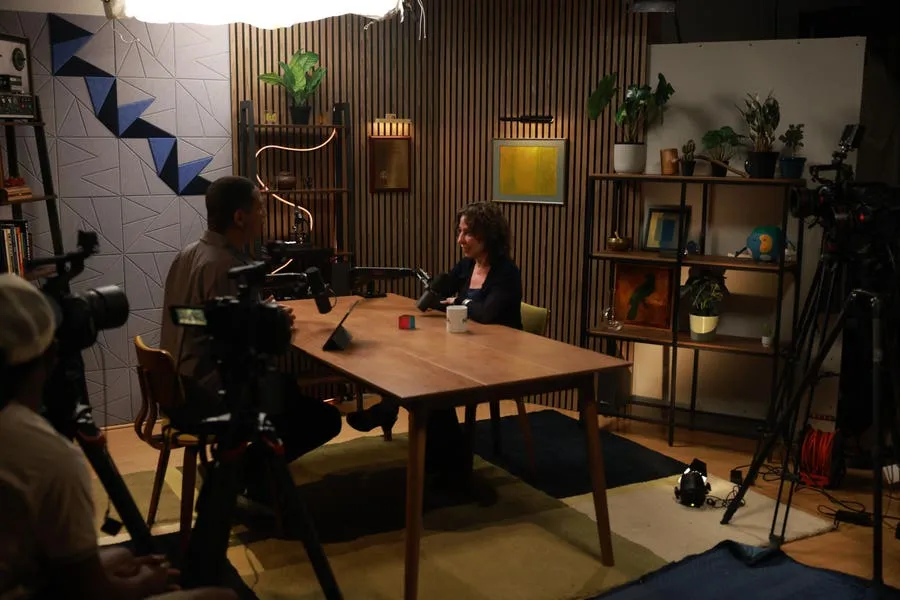In August 2025, 2,171 scientists signed an open letter warning Congress that proposed FY26 budget cuts would do lasting damage to the nation's economy, health and global standing. The initiative was spearheaded by National Academy of Sciences member Walter Leal of the University of California, Davis. The signatories of the letter included 80 Nobel laureates and 50 recipients of the National Medal of Science.
Companies like Toshiba are highlighting the growing role of Science, Technology, Engineering and Math (STEM) education through their ExploraVision program, which has support from science experts including Bill Nye and astronaut Leland Melvin.
"STEM is more important than ever, especially as the nation continues to see growing demand for skilled professionals across the field but there is an ever-widening talent gap across these professions," said Duncan Cane, vice president, Toshiba America Foundation.
Cane says that with emerging technologies like AI and quantum advancing at a rapid rate, there's a mounting need to close this skills gap to further advancements and education plays a critical role in doing so.
"One of the best ways is by introducing STEM education early on, particularly in the developmental K-12 stages for students," he said. "This helps to not only spark student interest in the field but also helps to fuel the professional pipeline as well."
Now, GBH and producers from NOVA are putting science conversations into a 10-episode long-form video podcast, Particles of Thought. The podcast is hosted by astrophysicist, science journalist and author Hakeem Oluseyi, launched on August 26, 2025.
In each episode, Oluseyi sits down with leading scientists and researchers behind today's biggest breakthroughs in science to reveal not just the research but how scientists think.
"One thing that strikes me is how much great science starts with being comfortable with not knowing," said Oluseyi. "Scientists live in uncertainty, and instead of running from it, they lean in. They build models, they test assumptions, and they argue. But it's all rooted in the same habit: never falling in love with your own answer."
Oluseyi says another notable pattern of scientists is the combination of creativity and rigor.
"Scientists will imagine something wild, then immediately attack it with math or data,"he said.
"That dance between imagination and discipline is where breakthroughs happen."
The first two episodes of Particles of Thought featured conversations with Dr. Kirk Johnson, sant director at the Smithsonian Institution, National Museum of Natural History in episode 1, "The Mind of a Fossil Hunter" and Hany Farid, UC Berkeley professor and a leading voice in AI research and digital forensics in episode 2, "Fake Detective".
Connecting these two different disciplines, deep time and digital forensics, in the series is what makes the podcast series unique. Oluseyi says that curiosity is the thread that binds them together.
"Whether we're talking about fossils from billions of years ago or how your phone leaves a digital fingerprint, it's the same human impulse: making sense of the unknown,"said Oluseyi.
Oluseyi says he wanted the series to show that science isn't siloed.
"It's all connected by ways of thinking. Deep time teaches us patience and scale; forensics shows us precision in the moment,"he said.
"Both remind us that carefully analyzed and interpreted evidence can completely rewrite our picture of reality -- and that today's hard science is often the real-world version of yesterday's science fiction."
"NOVA has been a leader in long-form science content for over 50 years, so it's been really exciting to see the format of long-form video interview podcasts really take off across the digital landscape,"said Julia Cort, co-executive producer of the podcast.
"The appetite for going deep and totally nerding out on a single topic is clearly there and growing."
She says that at the same time, the podcast has an amazing roster of scientists who are have made mind-blowing discoveries and are great at communicating the challenges and drama of working at the frontiers of science.
"It's the perfect opportunity to engage deeply curious people in truly awe-inspiring research,"said Cort.
Oluseyi says the show is balanced so listeners never feel left behind. He strikes this balance by refusing to talk down to people.
"Oversimplifying insults your intelligence, but dumping jargon on you isn't communication either."said Oluseye.
"My job is to translate, not dilute or obscure. If I can take a concept like 'cosmic inflation' or 'digital entropy' and anchor it in an image you can picture or a story you can relate to, then you're not just following along; you're in it."
Oluseyi says the trick is to maintain the complexity while layering it in so you can climb with them step by step.
The series features guests including evolutionary biologist Sean B. Carroll; Nobel Prize-winning astrophysicist Adam Riess; astrobiologist Michael Wong; mineralogist Robert Hazen; evolutionary biologist Beth Shapiro; marine biologist Peter Girguis; neuroscientist Heather Berlin; and astrophysicist Janna Levin.
When asked which episodes he thinks will challenge the way we think about science and society, Oluseyi says the conversation with neuroscientist Erich Jarvisk on how birds and humans learn to speak.
"That one is going to stick with people because it's not just about language,"said Oluseyi.
"It's about the wiring of the brain itself, and what that wiring says about who we are."
"The fact that songbirds and humans share deep evolutionary links in how we learn to vocalize forces us to rethink language, not as some divine gift dropped on our species, but as part of a much older story written into biology,"said Oluseyi.
"And when you realize that the origins of human culture and civilization are tied to the same circuitry that lets a bird sing, it shifts the ground under your feet."
Oluseyi says it's a reminder that the line between "us" and the rest of nature isn't a wall. It's a bridge."
The 10-episode science series premiered on August 26 and will run through December 16, 2025 on the NOVA YouTube channel ,NOVA website, Spotify, Apple and all major podcast platforms.
